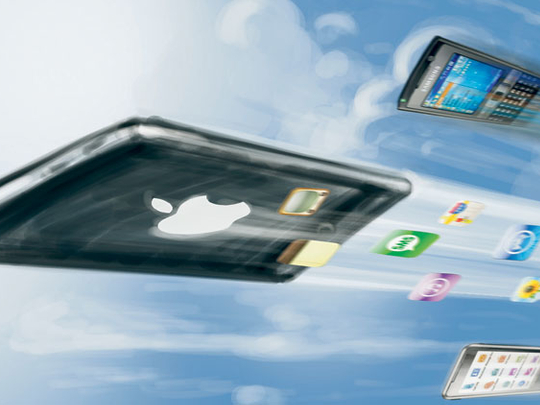
Succession intrigue is all the rage in Korea.
Events on the northern half of the peninsula are getting most of the headlines. There, the ageing and enfeebled Kim Jong Il is thought to be readying his son, Kim Jong Un, to take over. He would be the third of the Kim dynasty to rule North Korea.
Yet hereditary-succession moves to a third generation bear watching in the south, too. These involve family conglomerates Samsung and Hyundai and say a great deal about the outlook for the 15th biggest economy and not all good.
South Korea had a good global crisis. Talk of it going the way of Iceland was always silly and quickly gave way to kudos from investors. Korea is growing about 6 per cent year-over-year compared with 0.1 per cent in the US.
Credit where it's due: names like Samsung Electronics Co. and Hyundai Motor Co. helped Korea avoid the global rout. While General Motors Co., Toyota Motor Corp. and Sony Corp. had a rough 2009, Korean automakers and electronics outfits increased market share.
It's a far cry from 1997. Back then, the unwieldy, over-indebted and non-transparent ways of Korea's family owned conglomerates, or "chaebol," left the nation vulnerable to financial chaos in Thailand and Indonesia. The next decade was spent reining in the chaebol.
Full Circle
The process seemed to come full circle on March 24, when Lee Kun Hee, Korea's richest tycoon, returned as chairman of Samsung. Criminal charges of tax evasion led him to resign in April 2008. A pardon by Korean President Lee Myung Bak — a former Hyundai Group executive — in December paved the way for Lee to return to the world's second-largest chipmaker.
Many sense something very personal at play. It couldn't have escaped Lee that the company his father created was thriving without him, undermining the rationale for his son, Lee Jae Yong, to take over. Lee's return virtually ensures hereditary succession.
Does the younger Lee have the stuff to take Samsung to the next level? No one knows. Yet it's getting more than a bit distasteful for publicly traded companies to pass leadership from father to son and to son again. Why aren't shareholders and directors speaking out? Investors are better served when jobs are based on merit, not birthright.
Hyundai Chairman Chung Mong Koo is expected to turn the keys over to son Chung Eui Sun. On March 12, the junior Chung was appointed to the board of South Korea's largest automaker. It would be another third-generation scenario.
It's not unique in Asia to keep companies in the family. In his 2007 book, "Asian Godfathers," Joe Studwell demonstrated that the phenomenon suffocates entrepreneurship. Asia needs more start-ups that create new jobs, not behemoths protecting their turf. Korea is no exception.
Overwhelming dominance
Samsung, for example, has moved impressively up the innovation ladder. It scored the information-age trifecta: cool design, cutting-edge technology and good value. The problem is the overwhelming dominance of Samsung and other chaebol.
The extent to which the chaebol are above the law is troubling and turns off overseas investors. It's not as if Lee saw the inside of a jail cell. Lee was also pardoned in the 1990s after he was convicted of bribing two former presidents. Hyundai's Chung, by the way, received his own presidential pardon in 2008 along with two other chaebol executives one at SK Energy Co., one at Hanwha Group.
For all the growth they produce, the chaebol tower over the economy like modern-day overlords that concentrate wealth. At a time when Korea should be empowering scrappy start-ups that launch entire new industries, it's looking after its giants.
The official battle cry in Seoul these days is "Dynamic Korea." The $929 billion (Dh3.4 trillion) economy would be even more dynamic if the chaebol didn't hog up so much of the innovative oxygen. It will mean less growth and job creation in the years ahead.
Korea is at a distinct disadvantage in the age of the iPhone. Electronics makers used to chase Sony Corp. — now it's Apple Inc. Chief Executive Officer Steve Jobs who's keeping them awake at night.
Dynastic rule isn't about to go away in North Korea. Yet dynastic ownership hardly seems the best arrangement for South Korea's economy. Nor are complicated and hierarchical management structures conducive to a global environment increasingly shaped by China's rise.
Korea Inc.
Apple's iPhone and Research In Motion Ltd.'s BlackBerry crept up on Samsung. Playing catch-up in the thriving smart-phone space isn't where Korea wanted to find itself in 2010. And Apple, which late last year got the go-ahead to sell iPhones in Korea, is doing brisk business there. The iPad is next.
It's about more than hardware. The iPhone's success is partly a function of its 150,000 applications, many of them created by outsiders. It's not clear Korea Inc. is open or nimble enough to compete. It tends to rely on a tight-knit group of suppliers and consultants. That corporate structure is antithetical to where technology is heading.
The all-in-the-family model doesn't jibe with the 2010s. Not with the age of the iPhone upon us.












